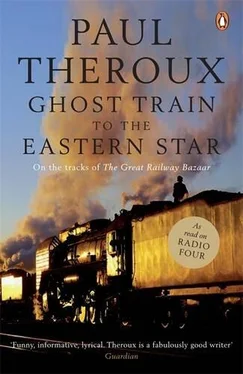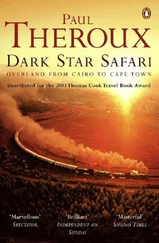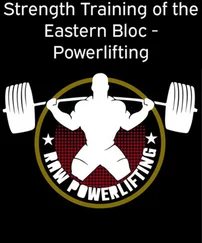The train lost itself in the Bulgarian plateau and the higher ground south of the river, among the hills, where trees were like a sign of wealth, not needed for farmland or fuel, and the stations sheltered little clusters of pale Bulgars, scowling men, mustached old women. And then long sweeping hills, startling, lovely, because I had been expecting more Romanian decrepitude; finally sunset over Veliko Turnovo, and more beer.
I was woken by a sudden knock at two-thirty the next morning. I sprang awake, still half drunk, and a slight but fierce Bulgar woman shone a flashlight in my face.
"Pusspoot."
But that was all there was to the Bulgarian border. In the past, the passports were handled by the conductor, who then demanded a tip at the end of the journey. I didn't mind the interruption; I found it revelatory and vaguely exciting: a fierce foreign woman in a peaked cap and leather coat and boots appearing in the middle of the night at the foot of my bed, insisting that I obey her.
Half an hour later we were at the Turkish border, in a town called Kapikule, the heavy rain lashing the open platform and the glittering lights. The night was cold, and big shrouded Turks marched up and down. Three in the morning and all the officialdom of Kapikule had turned out to greet the train. In spite of the score of policemen and soldiers, only one man was processing the train passengers who were entering the Turkish Republic: he sat in a little lighted window while we stood in the rain. I was last, Nikolai next to last. And now I could see the passengers: Romanians, Bulgars, Turks, big families, children in modest clothes, small Slavic boys no more than ten with mustaches as visible as those of their grannies, beetle-browed men — no tourists. With the driving rain, the old train, the intimidating border guards, and the shadowy town behind the prison-like station, it could have been forty years ago, all of us squeezing into the far edge of Turkey like refugees, soaking wet.
Nikolai said, "Is not modern!"
"Why are you going to Istanbul?"
"Attending conference on European enlargement. I am reading paper."
"Romania's being allowed to join, right?"
"Will join in January 2007."
"But not Turkey?"
"Turkey is problem. Human rights." He shrugged, rain pouring down his face.
"Romanian human rights are better?"
"Improving now, because we want to join EU."
"America is capturing people in places like Tanzania and Albania and sending them to Romania for interrogation."
"Who tell you this?"
"It's called extraordinary rendition. They can be tortured in Romania."
"We are friendly with America now. Also with Britain. We have U.S. military bases. Romanians are against the war in Iraq, but we like Americans."
"What is Romania's main industry?"
"Agriculture."
"Nikolai, agriculture isn't an industry."
"We have much wheat and maize." He thought a moment, then said, "Ceausescu ruined the country. He destroyed it and tried to rebuild it. He put up ridiculous buildings."
"I saw the Palace of Congresses."
"Ha! A monster! His daughter wants his body to be dug up so they can identify him. It's not him, she says."
"Do you remember when he fell?"
"I was seven in '89 when he was overthrown, but I remember the excitement. My grandparents lived with us. They were so happy. They always said, 'The Americans will come.' Meaning — will save us. They said it after the war. My parents said it. They said it in the 1950s. During Ceausescu. 'The Americans will come.' After Ceausescu. 'The Americans will come.' We hated our government. We wanted to be saved."
"How do you know this?"
"One of my projects is oral history. I interviewed many people, not just my relatives but people from all over Romania. One man was in solitary confinement for seventeen years, for a petty offense. Another man I spoke to was walking down a street in Bucharest. He was carrying a French book — literature, maybe Flaubert. The police stopped him. They seized the book and they framed it as 'antisocial.' He got a year in prison — this was in the 1980s!"
"Weren't people angry, being treated like this?"
"They said, 'The Americans will come. They will save our soul.'"
"Has it happened?"
"We have a right-wing government. It is opportunistic. We have U.S. military bases, and the people approve it. We have seen worse, much worse."
Eventually we got to the window. I bought a Turkish visa for $20 and we had our passports stamped. Then, completely wet and very cold, I re-boarded the train and went to sleep. It was then around four-thirty, and by the time I woke, dawn had broken and we were passing the Sea of Marmara, muddy fields on one side, ships beyond the tracks, the big bold city of domes and minarets in the distance.
Nikolai had crept out of his compartment, his face pressed to the window. He had never been to Turkey before; he had never been out of Romania. He looked alarmed.
"What do you think?"
"More modern than I thought."
He was dazzled and swallowing hard, for it was not just the enormous mosques and churches that were impressive but the density of the building in these southwestern suburbs of Istanbul. I was impressed too, as much by the extent of the new construction as by its modernity. It made Romania seem the muddiest Third World backwater.
I said, "Isn't it unfair that Turkey can't join the EU for another ten years or more?"
Nikolai said, "They have problems with human rights of the Kurds and the Armenians."
"The Kurds want to secede and start their own country, which is a little unreasonable. And the Armenian business was a hundred years ago. Look at this city — imagine the power of this economy."
"But in the countryside is different. Poor people," Nikolai said, thinking of the poverty in rural Romania.
"You've seen them?"
"No."
"What about the Gypsies in Romania?"
"Is a problem. How integrating? We don't know. Some live in tents. We call zidane " he said, using the Russian word for the people, called Rom or Romany all over Europe.
"What's the biggest problem in Romania?"
"Maybe Gypsies. Maybe poverty."
"What's the cost of living?"
"Is the same as Toronto. My uncle lives there."
He was appalled by what he was seeing, Istanbul rising all around us, the train screeching past the old city wall and new tenements. We were racing towards Seraglio Point and the sight of the Bosporus — Asia looming on the far side.
Nikolai was speechless. It was obvious that he had prepared himself for a shabby Asiatic city of oppression and torture, crumbly mosques and fez-wearing Turks and backward-looking Muslims. Instead he was greeted by a grand and reimagined city of laughing children and beautiful women and swaggering men which had been ignored by Europe and sneered at by the Islamic republics. It was a city of ancient gilt and impressive modernization. He could see that the old city had been preserved — we were passing through it, approaching Sirkeci Station in the old-fashioned but carefully preserved quarter of Sultanahmet; and beyond the Golden Horn were the bluffs of Beyoglu and the tooting ferries to the Asian side, which was lined with magnificent sea-front houses, the villas they called yalis, and the rain still coming down hard. Nikolai shriveled into a country mouse and, with his forehead pressed against the train window, looked as though he were going to weep with frustration.
ISTANBUL IS A WATER WORLD, and your first view of it, stepping out of Sirkeci Station, is the pin-cushion profile of minarets on domes seeming to rise from steep dark islands, turbulent ocean all around, the Sea of Marmara to the right, the Golden Horn to the left, the Bosporus straight ahead. Walk forward, walk anywhere, and you approach water splashing at the shores of the city, which is spread across three distinct promontories. Across the Sea of Marmara, dappled with raindrops this afternoon — past the ferries and cargo ships and fishing boats, those silhouettes of battlements and villas — is the shore of Asia, the twinkling edge of the Eastern Star.
Читать дальше












